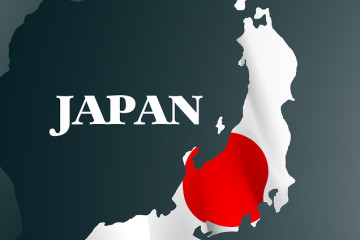Libya Oil Comeback Unlikely as Political Stalemate Endures

published Jul 4th 2016, 9:26 pm, by Ghaith Shennib and Caroline Alexander
(Bloomberg) —
The end of a split in Libya’s National Oil Corp. marks a small step toward healing the divided country, but the political stalemate that shut down of most of its crude production is as entrenched as ever.
The Government of National Accord was intended to unify Libya after a United Nations-brokered peace deal in December. While it has made some progress, the country is still split down the middle between governing factions. The influence of Prime Minister Fayez al-Serraj remains largely confined to Tripoli, while military commander Khalifa Haftar dominates the eastern stronghold of what used to be the internationally recognized government. The rest of the territory is a shifting patchwork of tribes, militias and Islamic State.
Libya splintered after fighters from different regions came together five years ago to oust Moammar al Qaddafi. Since then, the factions have been vying for control of Africa’s largest crude reserves, source of more than 95 percent of export revenue prior to 2011. Even after rival leaders agreed on Sunday to unify the state oil company under a single management, the bulk of the country’s oil infrastructure is either damaged or straddles disputed territory, making a significant increase in output a remote prospect.
“I am not convinced the announcement about the reunification of the two rival NOCs will actually deliver any increase in production any time soon,” said Richard Mallinson, an analyst at Energy Aspects Ltd. in London. The new government is struggling to unify the various factions and Haftar and his allies “have sufficient control of infrastructure and politics in the east to prevent the GNA from broadening its mandate.”
Divided Control
One glance at the map shows how the divisions have choked off 85 percent of the country’s prewar oil output of 1.6 million barrels a day. The bulk of the country’s oil system, from fields to pipelines to export terminals, is split between rival groups, according to information compiled by Bloomberg from officials at the al-Horoj company, Arabian Gulf Oil Co., Mellitah Oil & Gas BV, Zueitina Oil Co., the Bouri and Wafa fields, and the Petroleum Facilities Guard, or PFG.
In the southwest, the El Feel and Sharara oil fields, together Libya’s largest, are controlled by GNA allies the 3rd Force from Misrata, but the pipeline linking them to the coast is blocked by Zintani militias and the shipping terminal is controlled by allies of the Tripoli PFG. To the east, although Haftar’s Libyan National Army controls some fields in the Sirte Basin, the connected export facilities are mostly held by groups currently aligned with the GNA.
No faction has been able to legally export oil independently of Libya’s NOC based in Tripoli, but they keep hold of the fields and terminals for leverage.
“The merger between the two NOCs is welcome news but implementation is key,” said Mattia Toaldo, senior policy fellow at the European Council on Foreign Relations in London. “Restarting production depends on forces who actually control installations” and no single group holds sway.
Still Pumping
Libya is still exporting about 250,000 barrels a day of crude, Mohamed Elharari, an NOC spokesman in Tripoli, said by phone June 30. Some oil fields in the Sirte Basin in central Libya are pumping to the port of Brega, while Sarir and Messla are exporting through the port of Hariga about 880 kilometers (550 miles) from the border with Egypt, Elharari said.
The little production that continues is vulnerable. Authorities in eastern Libya briefly halted shipments from Hariga last month in retaliation for the seizure of a cargo they had tried to sell independently of the Tripoli-based NOC.
Islamic State, under siege in Qaddafi’s hometown of Sirte, has a stated policy of targeting oil infrastructure to deprive authorities of the funds needed to underpin the transition to democracy. The extremist group is “on the defensive, but by no means defeated,” Mallinson said. It has attacked cities including Tripoli over the past two years.
Guards Split
The GNA is meant to be able to rely on the Petroleum Facilities Guard, a 27,000-strong force assigned to protect the nation’s oil installations, but many of its leaders have proved to be inconsistent allies. Ibrahim al-Jadran backed the GNA in May, but exports remain shut down at the export terminals his PFG forces control: Ras Lanuf, Zueitina and Es Sider, which is severely damaged. The Brega PFG backs Haftar.
If the PFG is going to effectively protect Libya’s oil installations, it needs to be restructured to avoid getting caught up in political disputes, Colonel Ali al-Ahrash, appointed overall head of the force by Serraj in June, said in an interview on June 24. That’s particularly important because of the risk that Islamic State will move fighters from Sirte to attack pipelines in remote areas, he said.
“Oil facilities would be an easy target if we don’t work to unite,” al-Ahrash said.
Hollowed Out
Even if the GNA were to gain the upper hand, it would take years before output rises above 700,000 to 800,000 barrels a day because of damage sustained during fighting and lack of maintenance, according to Energy Aspects. There are currently few signs that the unity government will prevail, particularly as rival forces build up their presence around Sirte.
“I don’t see the GNA collapsing, but being hollowed out in the coming weeks,” said Toaldo of the ECFR. “Haftar is trying to spoil the agreement” that created the new government, he said. Article eight of the accord would effectively reset the military leadership of the country and put Haftar out of a job.
A coalition of forces under the GNA, including Misrata militias and Jadran’s PFG, moved into the Sirte region at the end of May in an effort to drive out Islamic State. Haftar also deployed his fighters into the area earlier in the year, saying they’d battle the jihadist group. The two sides have clashed over the past few weeks around Ajdabiya, said Tore Hamming, an analyst at Risk Intelligence in Denmark.
“It will probably become more violent, unless they find a solution over Haftar and his role in the Libyan setup,” Hamming said. “In this struggle, control of the oil becomes more important. I’m not optimistic for the short to medium term.”
To contact the authors of this story: Ghaith Shennib in Cairo at gshennib@bloomberg.net Caroline Alexander in London at calexander1@bloomberg.net To contact the editor responsible for this story: James Herron at jherron9@bloomberg.net Amanda Jordan
COPYRIGHT© 2016 Bloomberg L.P







No Comment